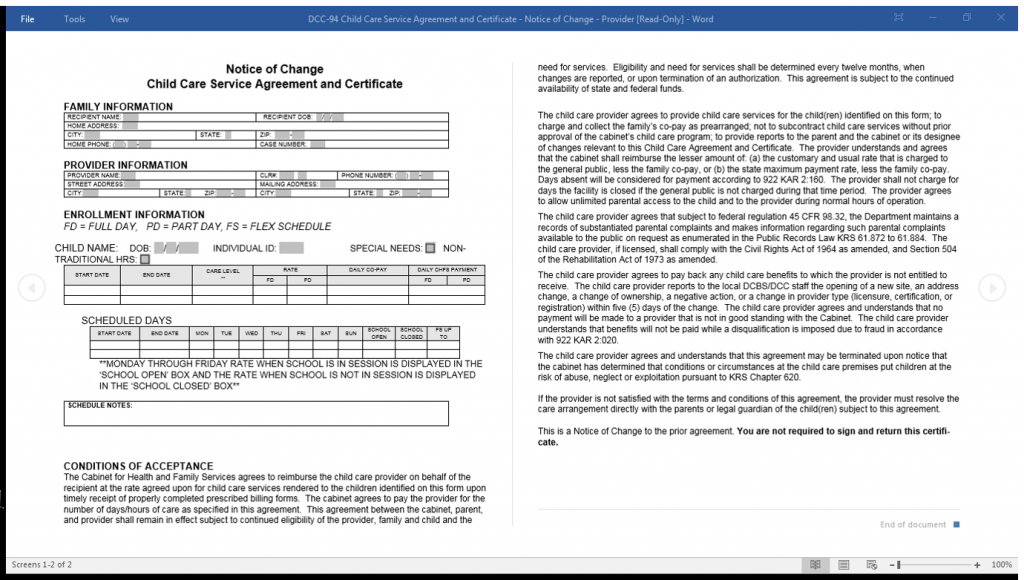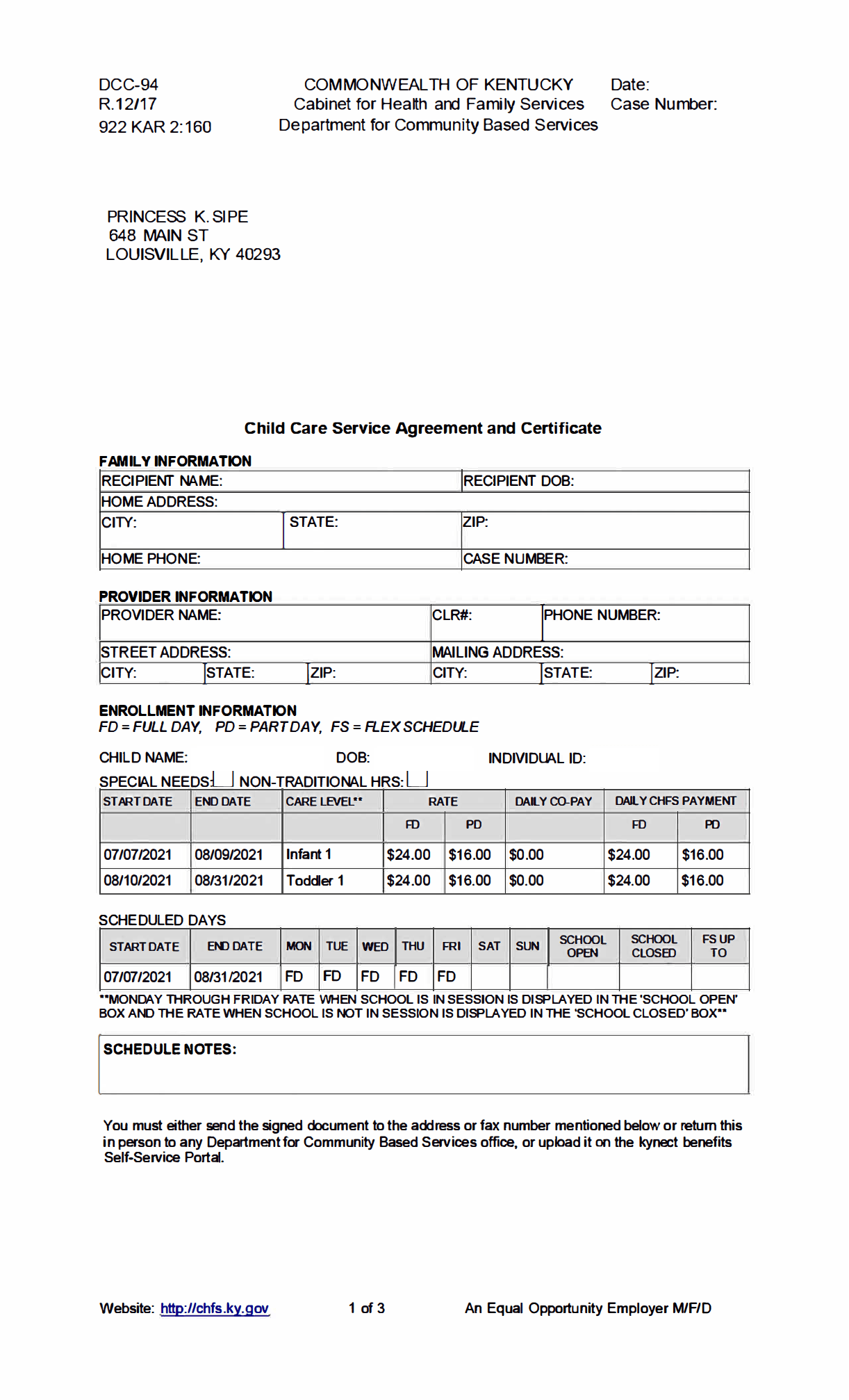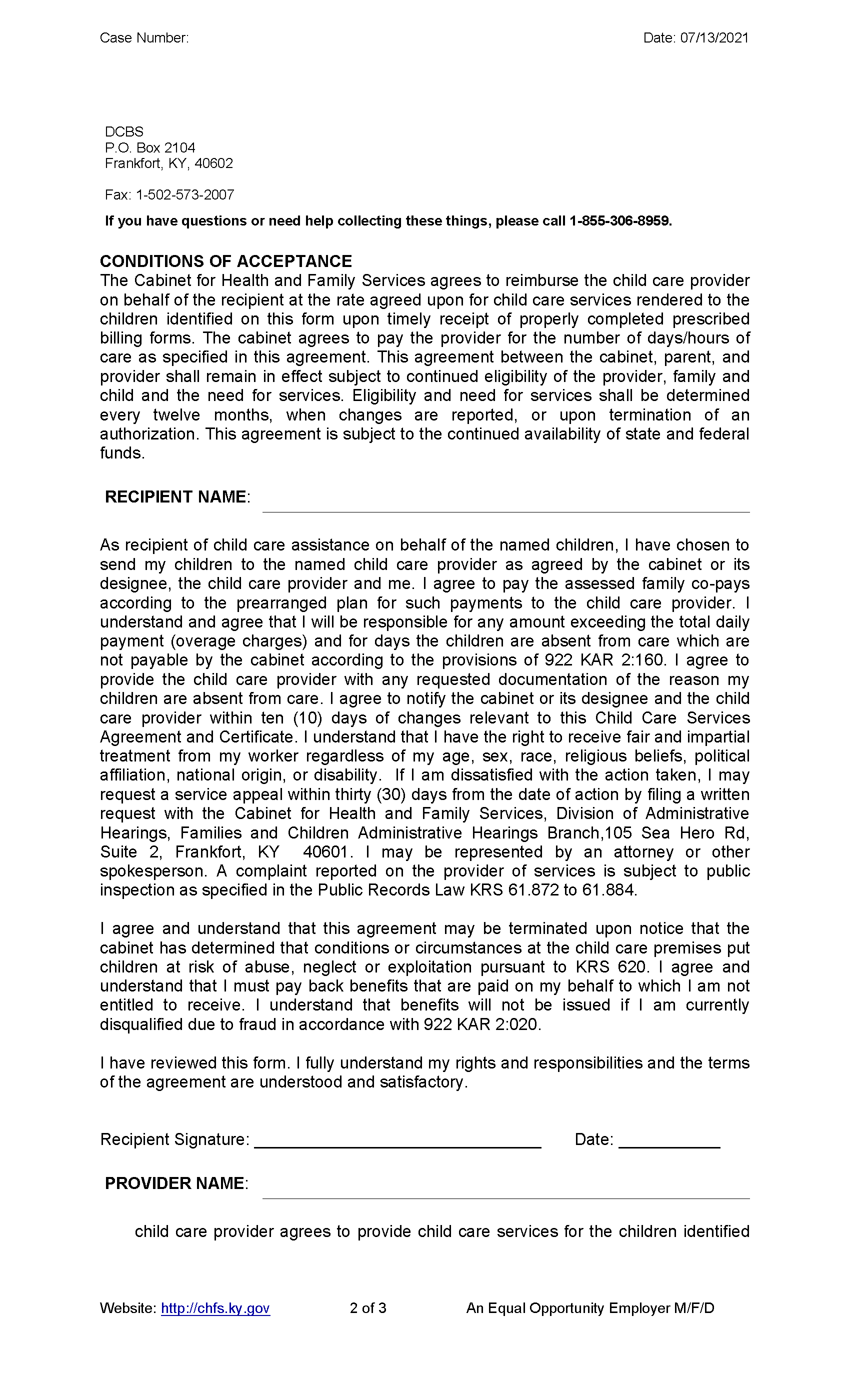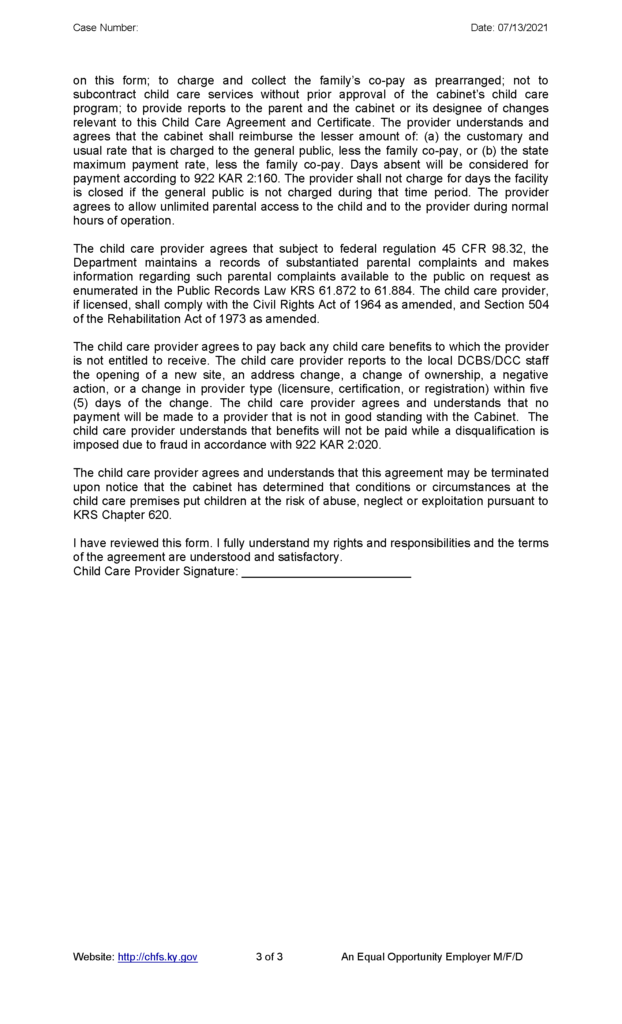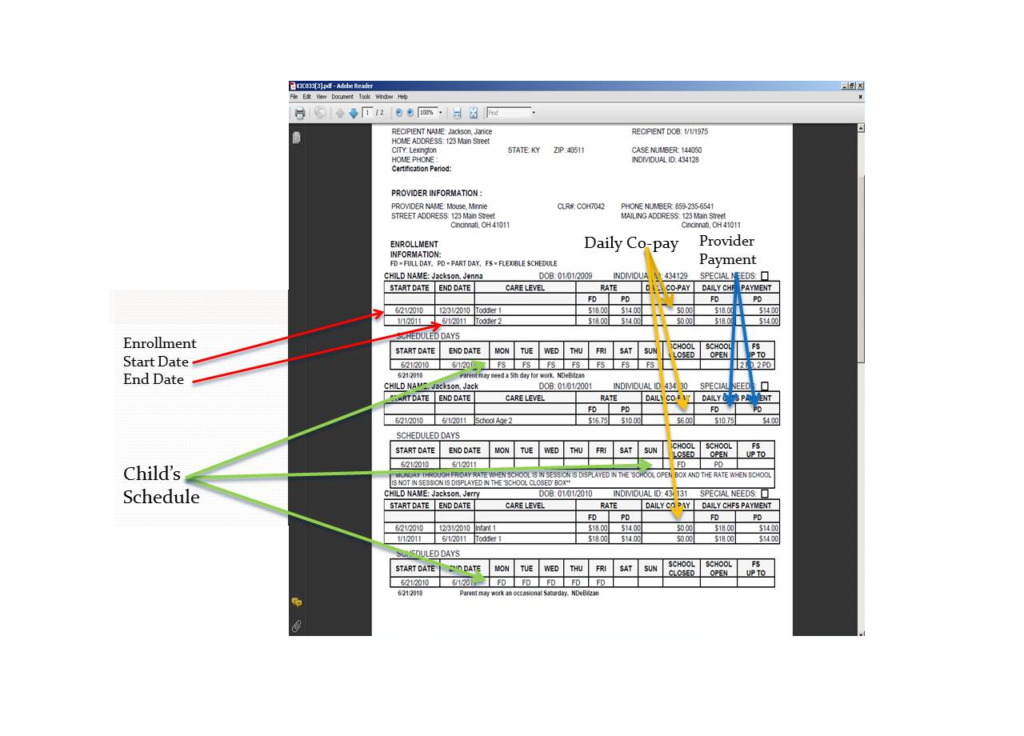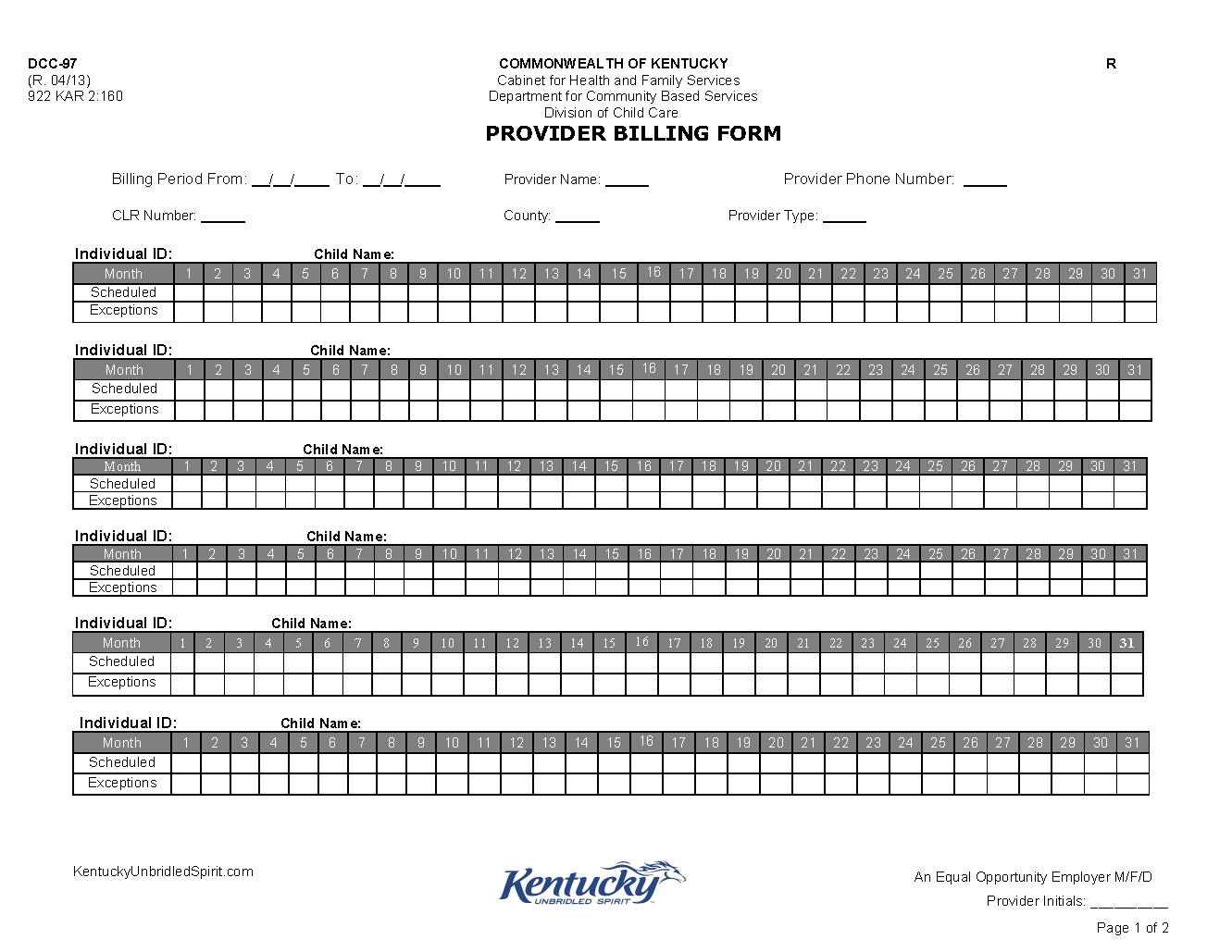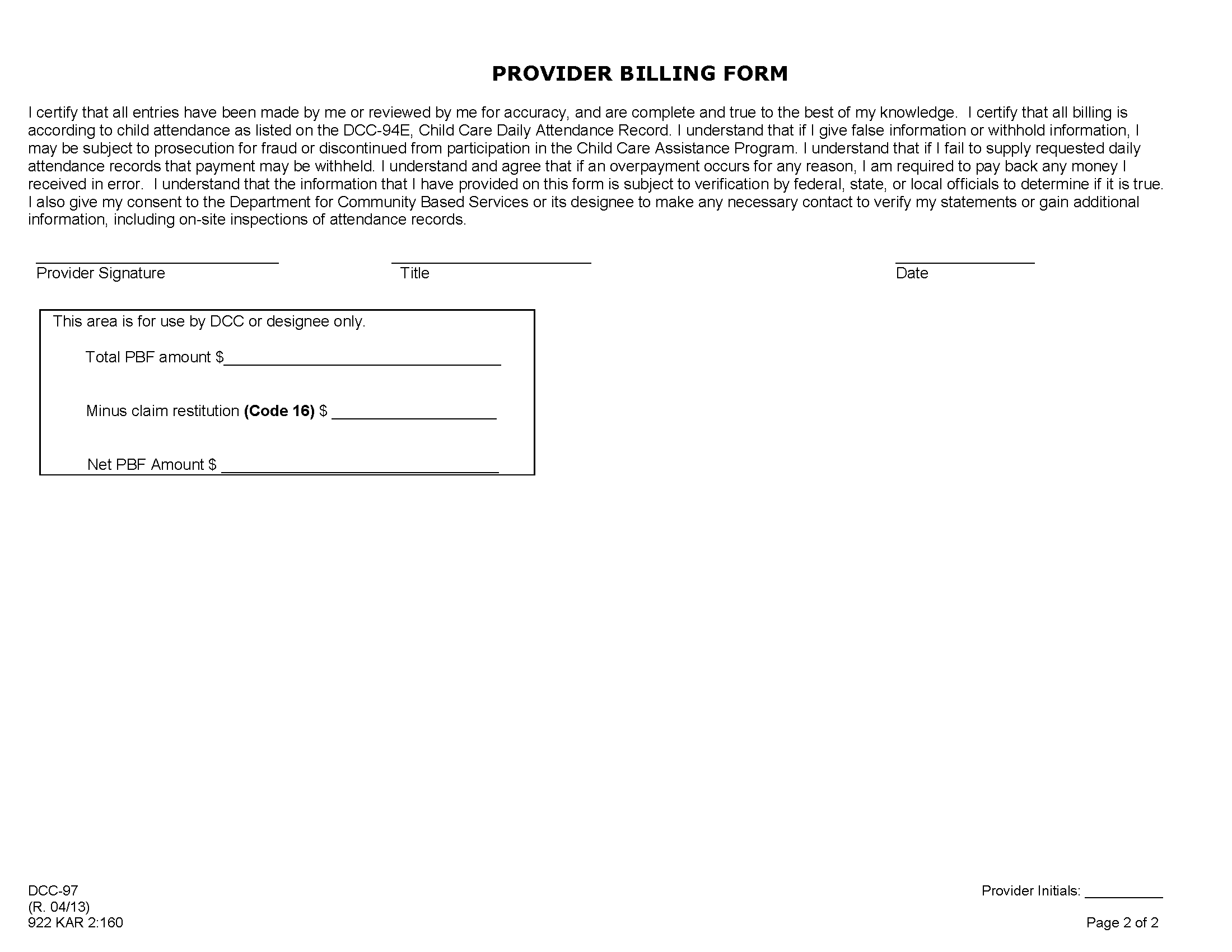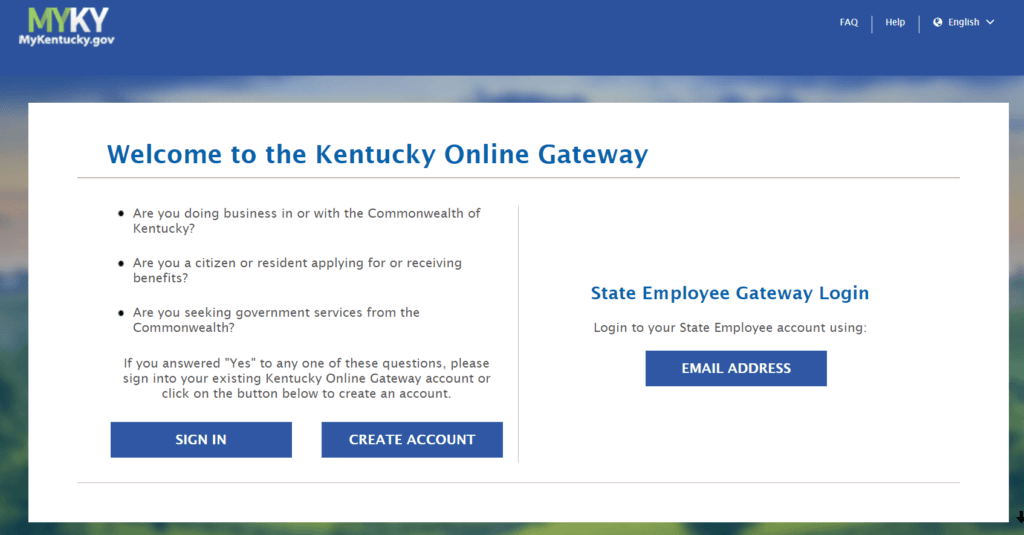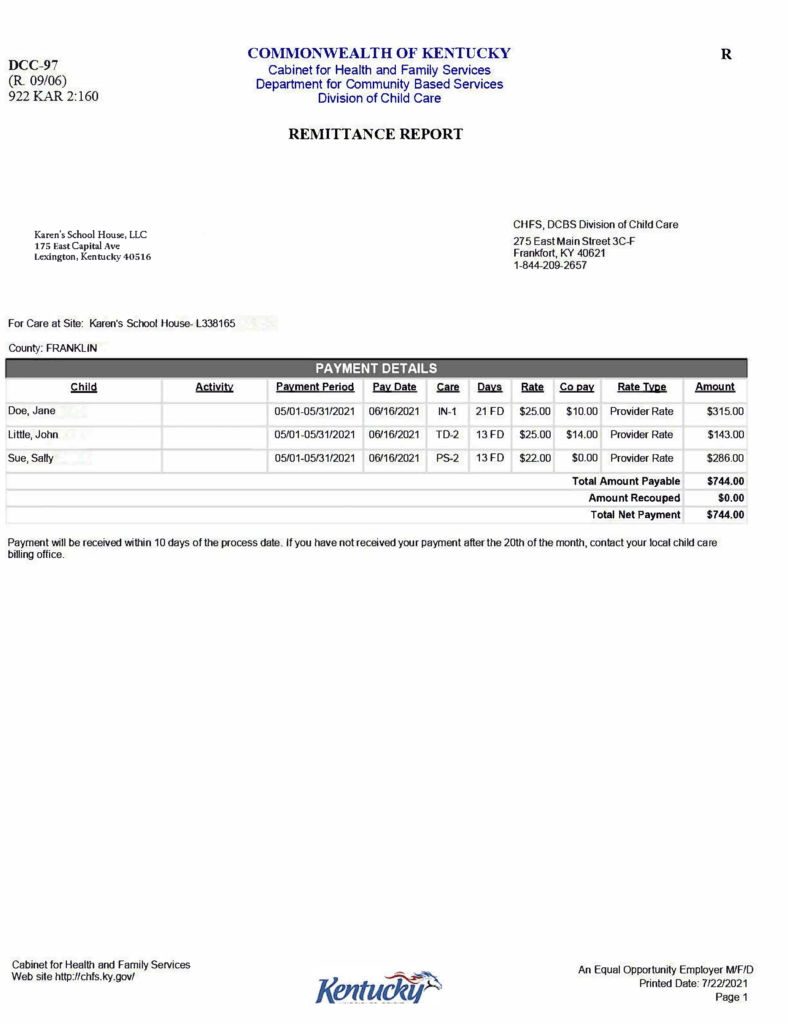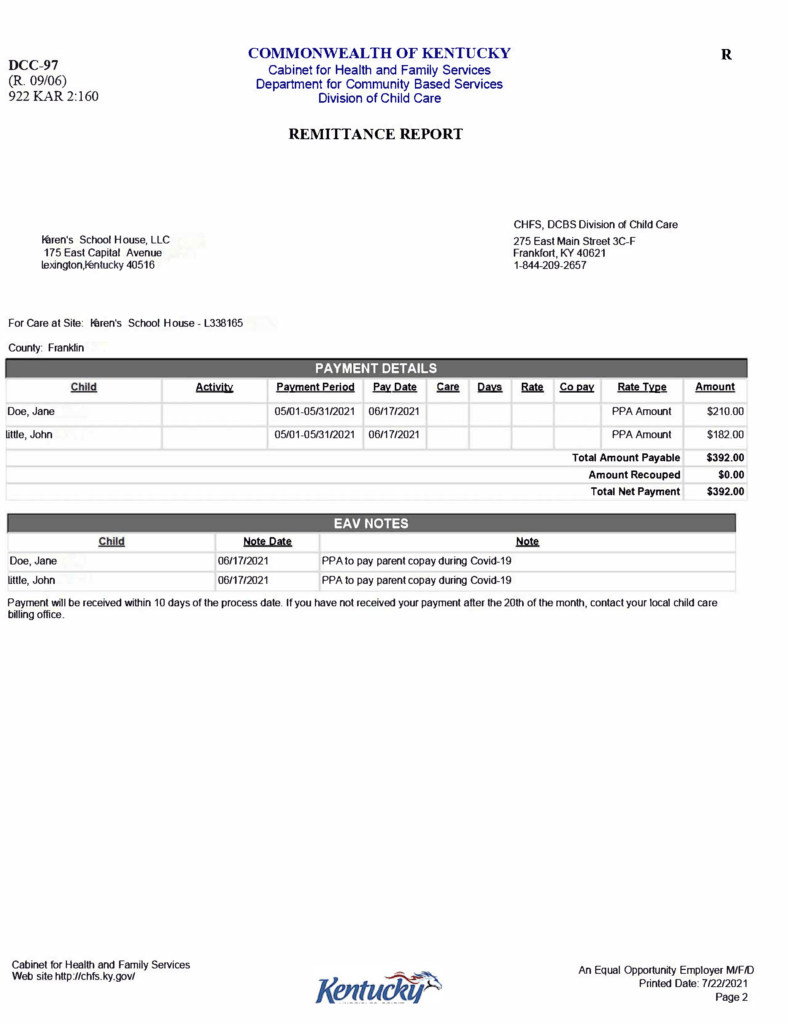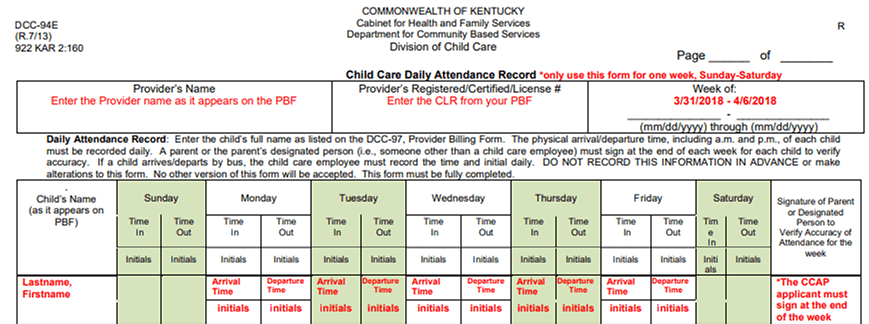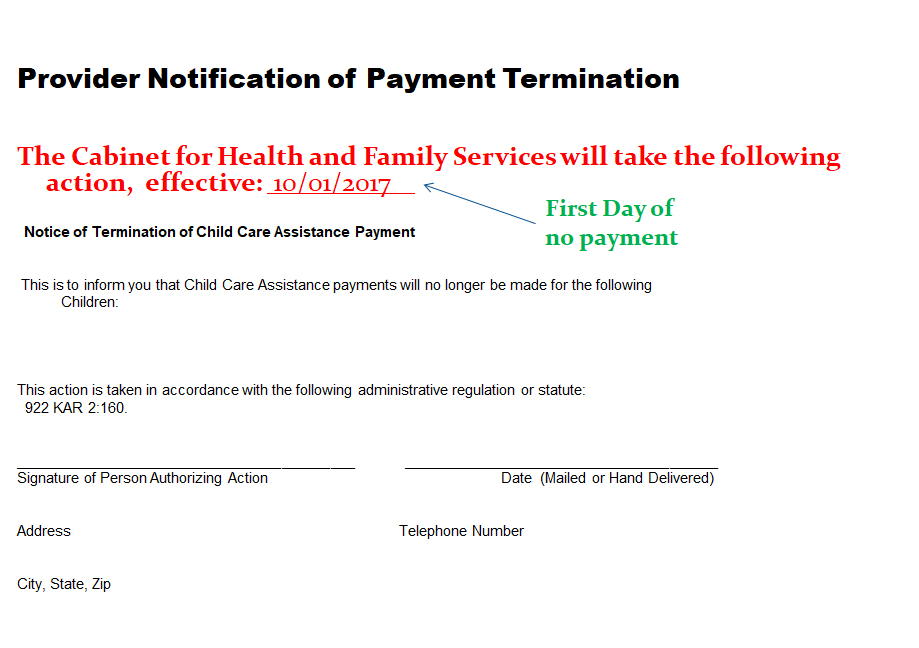Kentucky Child Care Maximum Payment Rate Chart
The DCC-300, Kentucky Child Care Maximum Payment Rate Chart, details by county the max rate the state can pay per child based upon license type and age of the child. Rates are based on a full day, which is defined as care five (5) to eighteen (18) hours per day, or a part-day, which is defined as less than five (5) hours of care per day.
The state of Kentucky does not mandate the rates a provider can charge. Each provider can consult the DCC-300 when setting their rates but ultimately, may charge more or less than these rates.
Licensed or Certified Provider Agreement Form
Providers are encouraged to complete a DCC-94B, Licensed or Certified Provider Agreement Form, yearly. The DCC- 94B allows providers to make any billing changes that may affect their CCAP payments.
Incentive/Special Rates
Child Care centers may receive Incentive / Special Rates. This includes an extra $5 per day for accredited centers; $10 per day for non-traditional hours of operation, and $5 per day for special needs child care. Incentive/Special Rates (if applicable) are added at the time of payment through the KICCS system and are not reflected on the State Max Rate DCC-300. These incentive/special rate increases go into effect on 8/1/22.
Family Responsibilities
Payment Rate Codes
Payment rates are determined by the age of the child.
| Age | KICCS Code |
|---|---|
| Birth through 12 months | Infant 1 (IN-1) |
| 1 to 2nd birthday | Toddler 1 (TD-1) |
| 2 to 3rd birthday | Toddler 2 (TD-2) |
| 3 to 4th birthday | Preschool 1 (PS-1) |
| 4 to 5th birthday | Preschool 2 (PS-2) |
| 5 to 6th birthday | Preschool 3 (PS-3) |
| 6 to 8th birthday | School-age 1 (SA-1) |
| 8 to 13th birthday | School-age 2 (SA-2) |
| 13 to 19th birthday | School age 3 (SA-3) |
Schedules
There are three types of child care enrollment schedules.
Regular Schedule
The regular schedule is used most frequently.
The child requires a consistent and predictable care schedule. For example, care is needed 5 days per week Monday thru Friday.
A regular schedule may also involve a variety of different days and/or full days (5 or more hours per day; FD) or part days (under 5 hours per day; PD).
For example, every week the child needs care Mon-Wed FD and Tue-Thurs PD.
School Schedule
The school schedule is geared toward children who are of primary school age.
It allows full days when school is not in session (including summer time and snow days) and part days when school is in session.
District school schedules are entered into KICCS prior to school starting each year. Snow days are updated during the month they occur.
The only time a school age child should NOT be on a school schedule is if the child requires more than 5 hours of care per day or require non-traditional hours.
Flex Schedule
The flex schedule is utilized if the families’ schedule varies and is unpredictable week to week.
A flex schedule is used to accommodate the family who works different hours and different days every week and are unable to predict their schedule week to week.
For example, the schedule may be entered as 4 FD 1 PD per week.
These days can vary and may not be the same days each week.
All school-age children need to be on a School Schedule unless they attend the child care center 5 or more hours per day. If a school-age child attends 5 or more hours and is on a Regular schedule, then on the PBF each month the provider should leave a note in the Provider’s Note box indicating the child attends 5 or more hours per day. As a reminder, per Federal Guidelines, CCAP funds cannot be used to pay for a child who attends school virtually if the school district offers in-person classroom instruction.
The regular schedule and the school schedule are prefilled with codes on the PBF.
A flex schedule does NOT have the care schedule prefilled on the PBF because it is flexible and needs to be filled in by the provider per the child’s actual attendance. If a flex schedule is not coded by the provider upon submitting the PBF then payments cannot be made.
Notice of Change Certificate
Providers will receive the DCC-94 Notice of Change Child Care Service Agreement, if the copay increases/decreases, the child’s care schedule changes, or if any rate information changes.
No signatures are required, this is for information and record-keeping purposes only.


